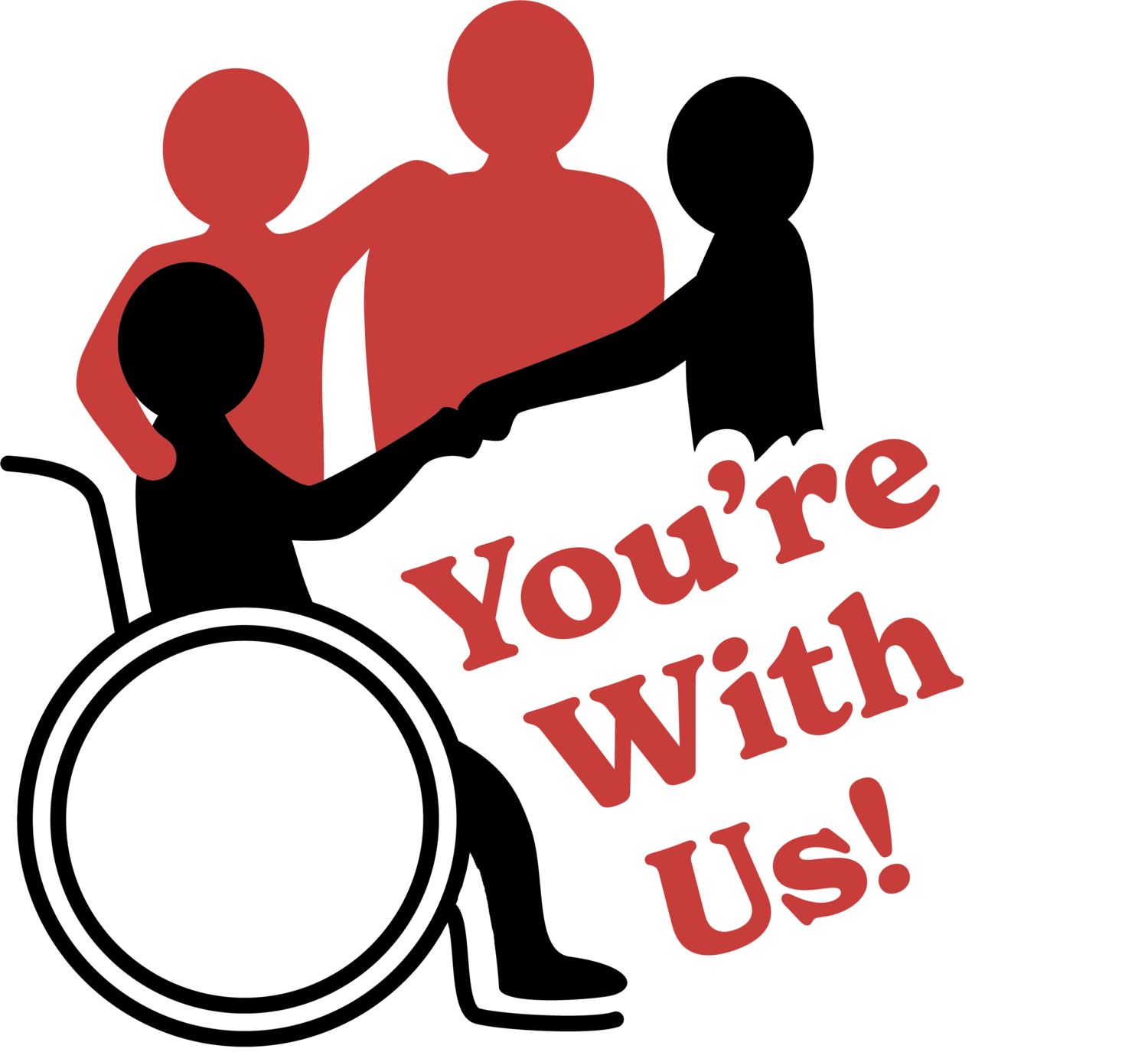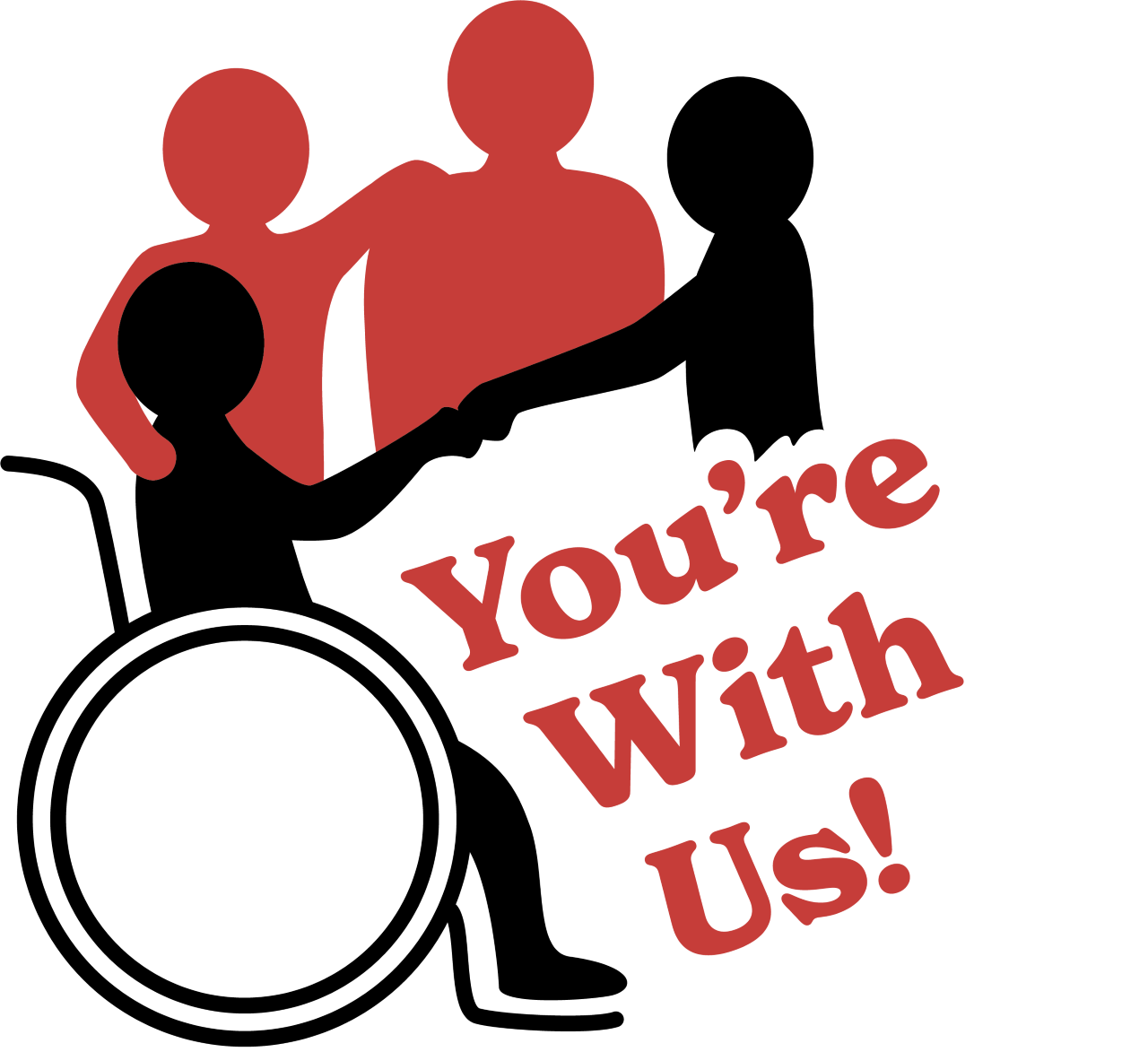Thanks to Western Massachusetts Coordinator Ben Karol
This post serves to recognize the efforts of our organization’s Western Massachusetts Programming Coordinator, Benjamin Karol, who is currently undergoing the medical school application process. My name is Michael Plansky, and I am the Founder and CEO of You’re With Us!, a nonprofit which creates inclusion opportunities for individuals with disabilities across over 20 college campuses in Massachusetts. I’m also the father of a 26-year-old son with cerebral palsy, and as a result my son Max and I have spent countless days at Boston Children's Hospital interacting with providers of all kinds. The doctors who had the greatest impact on my family brought more than clinical expertise; I felt genuine compassion and concern for our wellbeing as they consistently took the initiative to meet our needs before we had even voiced them. In the four years I’ve worked alongside Ben, he has massively expanded our presence across the Western Massachusetts community, established enduring partnerships with multiple departments at UMass, and dramatically increased our funding from the Western MA Department of Developmental Services (DDS). I’ve watched as he’s exceeded every expectation of his role, and demonstrated the characteristics of a doctor my family would ask for by name.
Ben directed the weekly, individualized community programming time for 10 individuals with developmental disabilities, and has hired, trained, and managed over 20 community mentors to meet their needs. Today, his branch is well-structured, deeply connected to community resources, and never fails to meet their weekly commitments. This wasn’t always the case–when Ben was promoted to UMass Campus Coordinator two years ago, he inherited a struggling program. At the time, there were only four student mentors attempting to fill dozens of weekly programming hours. Before Ben could settle into his new role, we received a notice from DDS stating that, due to years of unmet hour requirements and a perceived lack of community interest, they were indefinitely refusing to fund additional mentorship hours for this branch of our organization.
When we shared this unfortunate news with Ben, he responded immediately with resilience and action. That very weekend, while Ben was presenting his research at UMass’s Neurodiversity Summit, he gathered signatures from over 50 students and families with disabilities expressing their interest in joining our mentorship program. The following Monday he sent this petition to our contact at DDS, and by the end of the week they reversed their decision. In the years since, Ben has helped eight families successfully request that part of their DDS budgets be allocated toward individualized mentoring through our organization.
Not only did Ben mobilize a collective response to overturn a government decision in less than a week, he proceeded to triple the weekly funding his branch receives from the agency. His leadership reshaped our program so profoundly that he was promoted to the Western Massachusetts Programming Coordinator. This promotion was made not just in recognition of his success at UMass, but because the term “Campus Coordinator” no longer captured the scale of what he had built.
This is what makes Ben an unstoppable advocate for every individual he serves. When Ben encounters an obstacle or injustice, he doesn’t wait for others to take the lead. Instead, he actively seeks out people so marginalized by our society that they lack basic needs like food, social support, and healthcare. Then, through relentless effort and a deep network of community partnerships, he constructs social and medical safety nets to ensure those disparities are not only addressed, but are prevented from ever recurring. One of the first mentees Ben onboarded was a 74-year-old man with a disability who lived alone, without nearby family or caretakers. After becoming his mentor, Ben discovered that this mentee missed the renewal deadline for his MassHealth coverage and lost access to health insurance. Ben, as a student leader of Boltwood himself, collaborated with faculty from UMass’s Boltwood Project to reinstate his coverage and secure consistent access to a home health aide. Later, when this mentee’s EBT card stopped working and he could no longer afford groceries, Ben was there again as his first line of defense. Ben worked with the Food Bank of Western Massachusetts to resolve the issue, and connected his mentee with a local food pantry so he wouldn’t go hungry in the meantime. Today, Ben has ensured that this mentee’s medical and nutritional needs will be reliably met and closely monitored by faculty from UMass’s Department of Civic Engagement and Service-Learning.
Ben’s impact was made clear again this May, after a mentee’s father passed away one morning. This mentee called Ben with the news, and he responded immediately with compassion and action. Ben offered to turn that week’s Boltwood meeting into a celebration of life for his mentee’s father, and invited over 20 friends and mentors of the mentee who came to show their support. The event was held at UMass the very next day, and included food, activities, and a station for guests to write letters of support and condolence. Let me repeat that: Ben planned all of this in less than a day. And he didn’t wait for assistance from me or anyone else in our organization. He saw that his mentee was struggling, recognized he had the resources to help, and acted without hesitation. Even more impressively, Ben consistently organizes events like these without costing our organization a dime. Ben’s action and connections provided this mentee’s family with the space to grieve, laugh, celebrate, and form new relationships.
Ben has told me that his outlook on life is to treat every single person he encounters as if they were his own family–a mindset he consistently demonstrates by going beyond the requirements of his role. I’ve shared just two stories of the countless lives Ben has transformed through his work, and he shows this same level of compassion and commitment to every single person he meets. My colleagues and I joke that even when Ben is not working as an EMT, he’s still saving lives. But this is no exaggeration. Ben sees challenges as calls to action, responding swiftly and compassionately to moments of crisis by creating opportunities for connection, support, and healing.
Over the course of two years, Ben transformed our Western MA branch from a handful of mentors struggling to satisfy DDS requirements into a community resource so valuable it was recognized by the Chancellor at UMass’s annual Commencement Celebration Dinner, where Ben represented us as a distinguished guest. If a medical school admissions officer happens to be reading this, let me say this: If Ben spends four years at your institution, I have no doubt he will expand your connections to the community and inspire your students to engage more deeply with the population surrounding them. If that happens, I would gladly welcome any collaboration between your institution and ours. No matter where Ben ends up, I’m sure he will make it happen.

